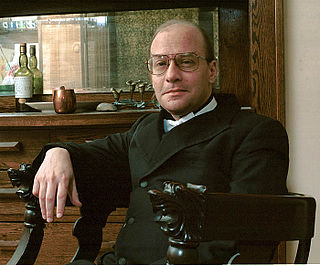A Quote by Paul Auster
Every novel is an equal collaboration between the writer and the reader and it is the only place in the world where two strangers can meet on terms of absolute intimacy.
Related Quotes
We must be forewarned that only rarely does a text easily lend itself to the reader's curiosity... the reading of a text is a transaction between the reader and the text, which mediates the encounter between the reader and writer. It is a composition between the reader and the writer in which the reader "rewrites" the text making a determined effort not to betray the author's spirit.
I think not in two or three dimensional terms but in five dimensional terms when I consider a novel. There's height, width, and depth, there's the time factor, and then there's the factor which I call the cerebral factor of the reader, the way the reader adjusts to all the other dimensions, which is the fifth dimension.
How often I have tried to tell writing students that the first thing a writer must do is love the reader and wish the reader well. The writer must trust the reader to be at least as intelligent as he is. Only in such well wishing and trust, only when the writer feels he is writing a letter to a good friend, only then will the magic happen.































